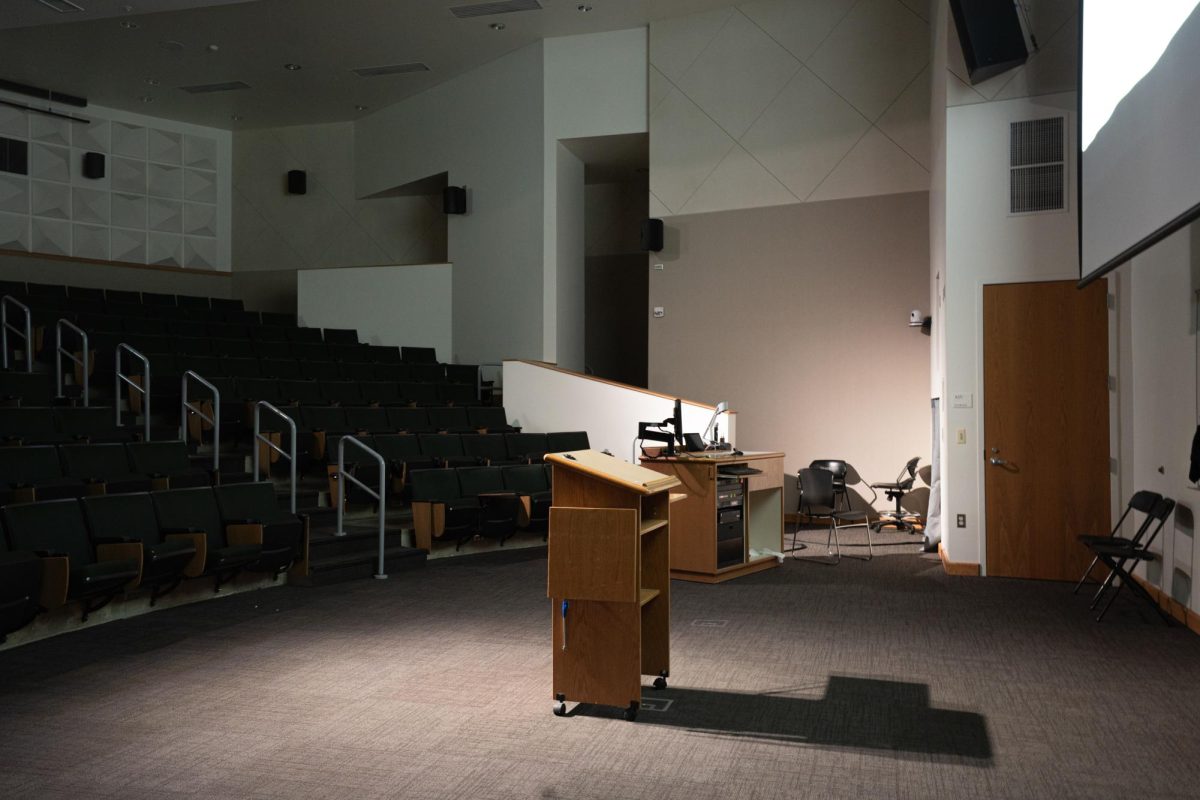With each new fad that enters our culture, it seems a new debate of the same rhetoric begins: Should Christians participate in the trends or dismiss them as secular, worldly, or even sacrilegious?
Keeping in mind contemporary trends in entertainment, such as Twitter, iPods and Oprah Winfrey, that is the question D. Brent Laytham takes up in his book “iPod, YouTube, Wii Play: Theological Engagements with Entertainment.”

The book is a far cry from the “If it’s not Christian, it’s not good” argument, using instead a challenging yet decisive approach to the question of how much secularism is too much.
The format of the book follows Laytham’s inquisitive approach. He inserts questions for the reader after every few paragraphs to break the chapters up.
Early in the book, Laytham questions the extent to which American culture centers itself around entertainment media, posing questions such as, “Does God or entertainment have a bigger ‘footprint’ in your everyday life?”
In questioning readers this way, Laytham invites them to not simply take his opinion at face value, but consider the implications of mass media for themselves.
While “iPod, YouTube, Wii Play” encourages the reader to consider the issues, Laytham definitely isn’t quiet about his own opinions on entertainment media. He questions the use of multimedia lessons in Sunday School classrooms, rock music in worship, and video games as escapist entertainment.
His own approach can seem outdated, as he sometimes assumes that the ways of the past were somehow more holy than the ways of the present.
Laytham comes across, at times, as completely ignorant of both certain technologies and technologically-driven subcultures.
Though Laytham admits in a couple places that the questions Christians in our culture face are not new, in other places he presents the questions as somehow uniquely located within the culture of today.
In that way, the book seems to both admit and perpetuate the fallacy that new technologies and trends present new problems for society.
For example, in questioning the use of U2 music in church services, Laytham asks whether that refocuses “our unity from love of God to love of U2.”
The risk of idolatry of musicians in church, however, is hardly a new possibility. Was the risk not the same with artists such as Thomas Chisholm (who wrote many popular hymns such as “Great is Thy Faithfulness”) in the late 1800s to early 1900s, or Reginald Heber (who brought us “Holy, Holy, Holy”) in the early 1800s?
Laytham also questions the effect entertainment culture is having on church communities as a whole, considering trends such as mega-churches, contemporary worship styles, and delineation of generations during services.
In those facets, he argues, church has grown to reflect society’s idea that larger audiences, loud and exciting music, and separating the young from the old all result in better services.
While Laytham’s ideology may be debatable on some points, he doesn’t frame the book in a way that expects the reader to agree with his every thought.
The book’s negative qualities are redeemed by Laytham asking readers to respond to his claims with claims of their own.
All in all, “iPod, YouTube, Wii Play” is worth the read if for no other reason than to make readers think about the ways in which media affects their faiths, their lives, and their thought processes.
Contact Lindsie Trego at lwagner14@my.whitworth.edu







 Spokane?
Spokane?